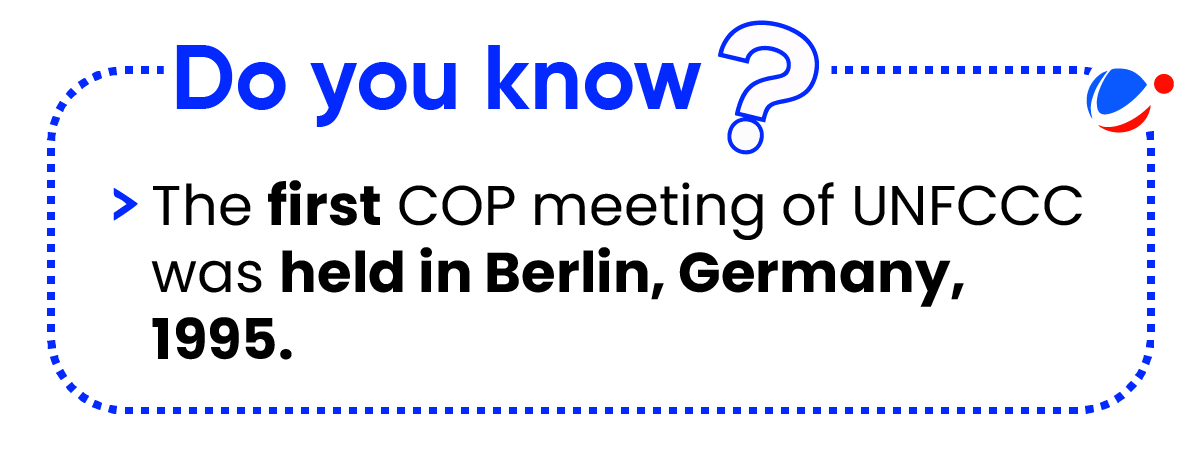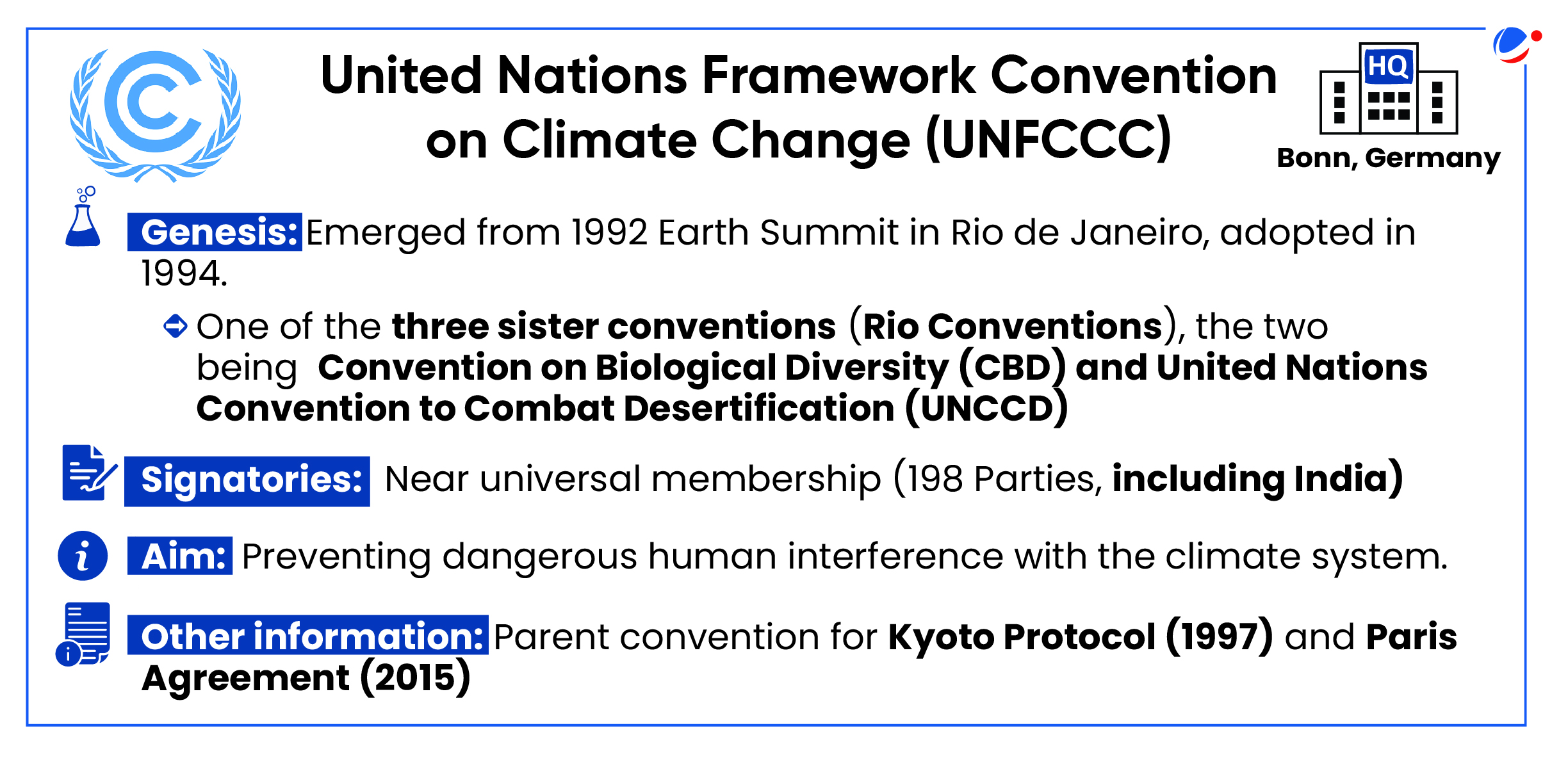Why in the News?
COP29, held in Baku, Azerbaijan, concluded with Baku Climate Unity Pact and several significant agreements.
About Conference of the Parties (COP)
- COP is the supreme decision-making body of the United Nations Framework Convention on Climate Change (UNFCCC).

- COPs are annual conferences where UNFCCC member countries assess progress, negotiate agreements, and refine commitments to address climate change.
- A key task for the COP is to review the national communications and emission inventories (e.g., Nationally Determined Contributions (NDCs)) submitted by Parties.
- COP 30 will be held in Belém, Brazil, in November 2025.

Key Outcomes of COP29
Themes | Details |
New Collective Quantified Goal on Climate Finance (NCQG) or Baku Finance Goal |
|
Carbon Markets and Article 6 |
|
Transparency |
|
Adaptation |
|
Indigenous Peoples and Local Communities |
|
Gender and climate change |
|
Click here to learn more about Climate finance related to NCQG and Carbon Trading and Market related to Article 6 of the Paris climate agreement.
Issues persisting in climate negotiations
- Inadequate climate finance: NCQG falls short of the Global projected investment requirement for climate action which is around $2.3–2.5 trillion in emerging markets and developing countries (EMDCs) other than China. (Raising Ambition and Accelerating Delivery of Climate Finance' Report)
- Due to inadequate funding, developing countries including India have rejected the climate finance deal agreed at COP29.
- Deadlock on Mitigation Work Programme (MWP): Due to a divergence in views on the role of fossil fuels in the future energy mix.
- The Global Stocktake, a comprehensive assessment of global progress towards climate goals, was a point of contention.
- Limited progress on climate targets: Progress in ambition and action since the initial NDCs plateaued and countries are still off track to deliver on the globally insufficient mitigation pledges for 2030.
- Global greenhouse gas emissions set a new record in 2023, with a 1.3% increase from 2022 levels (UNEP's Emissions Gap Report 2024).
- Other Issues:
- Slow pace of operationalizing the Loss and Damage Fund (LDF) and concerns over its inadequate funding.
- Next round of Nationally Determined Contributions (NDCs) has been postponed ahead of COP30.
- Large disparities between the current, per capita and historic emissions of major emitters and world regions.
- G20 members accounted for 77% of global emissions.
- Alleged influence of Fossil fuel lobbyists in negotiations.
Way Forward
- Enhance Climate Diplomacy through regular and constructive dialogue between countries, especially to address the concerns of developing nations regarding climate finance and mitigation targets.
- CBDR-RC: Decisions should take into consideration historical contribution to climate change and fulfil the principle of Common but Differentiated Responsibilities and Respective Capabilities (CBDR-RC), which mandates that developed nations need to support developing countries in climate action.
- Prompt and effective operationalization of LDF: It can help in providing financial support to vulnerable countries.
- Enhance NDCs: As per Emissions Gap Report 2024, emission cuts of 42% are needed by 2030 and 57% by 2035 to get on track for 1.5°C.
- Further, strengthening reporting mechanisms under the ETF can hold countries accountable for their commitments.






